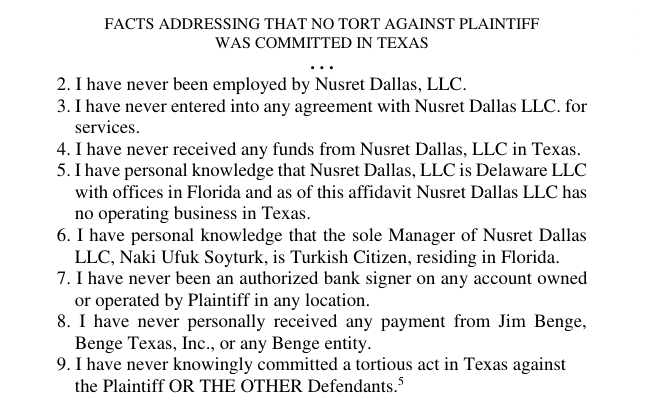 An out-of-state bus company purposely availed itself of Texas by entering an “Interline Agreement” with Greyhound, but the “operative facts” of the claims did not arise from those contacts. The Fifth Court held that the claims against the bus company were “principally concerned with the driver’s operation of the bus in Utah and [the company’s] conduct in employing the driver and otherwise providing the bus transportation in question,” rather than any activities or agreements that took place in Texas. Western Trails Charters and Tours, LLC v. Provance, No. 05-24-01089-CV (May 29, 2025) (mem. op.). (The graphic was an attempt to show, using AI, the “long arm” statute reaching out to a bus, which did not entirely succeed.)
An out-of-state bus company purposely availed itself of Texas by entering an “Interline Agreement” with Greyhound, but the “operative facts” of the claims did not arise from those contacts. The Fifth Court held that the claims against the bus company were “principally concerned with the driver’s operation of the bus in Utah and [the company’s] conduct in employing the driver and otherwise providing the bus transportation in question,” rather than any activities or agreements that took place in Texas. Western Trails Charters and Tours, LLC v. Provance, No. 05-24-01089-CV (May 29, 2025) (mem. op.). (The graphic was an attempt to show, using AI, the “long arm” statute reaching out to a bus, which did not entirely succeed.)
Category Archives: Special Appearance
MPI Indus. Carolinas, LLC v. CTE Networks LLC reversed the denial of a special appearance, noting that the work performed under the disputed agreement occurred in North Carolina and South Carolina, and that the plaintiffs’ unilateral activities, such as sending invoices from Texas, were irrelevant to the jurisdictional analysis. No. 05-24-00560-CV (March 11, 2025) (mem. op.).
 Janus (right) was the Roman god of dualities. Pruitt Family Living Trust v. Totus Gift Card Mgmnt also involved a duality, in the form of evidence and substantive rulings that were not consistent:
Janus (right) was the Roman god of dualities. Pruitt Family Living Trust v. Totus Gift Card Mgmnt also involved a duality, in the form of evidence and substantive rulings that were not consistent:
Through these inconsistent rulings, the trial court excluded the same evidence it presumably considered when granting TGCM’s special appearance. A trial court cannot allow one party the benefit of using authenticated evidence to support a special appearance while striking the same authenticated evidence to the detriment of the other side. Because of the trial court’s misapplication of rule 120a(3), it stripped appellants of their ability to admit any evidence challenging the special appearance. Stated differently, by striking the evidence relied on by TGCM to support their special appearance, the trial court was left with no evidence upon which it could rule, let alone grant, the special appearance. Accordingly, the trial court abused its discretion by ruling arbitrarily and without reference to any guiding rules
or legal principles.
No. 05-24-00612-CV (Dec. 27, 2024) (mem. op.).
 In Conexiones Tornado S. de Rl. de CV, the Fifth Court reversed the denial of a special appearance, made by a Mexican bus company sued for negligence after a bus crash in Mexico. A key issue presented was whether, on this record, the U.S. Supreme Court’s recent opinion in Ford Motor Co. v. Montana Eighth Judicial District Court required reconsideration of the Texas Supreme Court’s focus on the “operative facts” of a case as part of the inquiry about specific jurisdiction.
In Conexiones Tornado S. de Rl. de CV, the Fifth Court reversed the denial of a special appearance, made by a Mexican bus company sued for negligence after a bus crash in Mexico. A key issue presented was whether, on this record, the U.S. Supreme Court’s recent opinion in Ford Motor Co. v. Montana Eighth Judicial District Court required reconsideration of the Texas Supreme Court’s focus on the “operative facts” of a case as part of the inquiry about specific jurisdiction.
Legally, the Court held that the supreme court’s “‘“substantial connection’ test was not abrogated by Ford Motor,” and factually, the Court found that Ford Motor was distinguishable, noting: “Unlike Ford, Conexiones has not conceded purposeful availment in Texas. Conexiones argues not only that it lacks Texas contacts, but also that it has structured its business in such a way as to avoid subjecting itself to personal jurisdiction here.” No. 05-23-00353-CV (Sept. 23, 2024) (mem. op.).
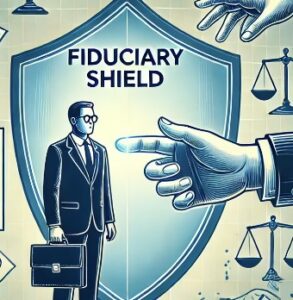 In Feeney v. Morfin Capital Group, the Fifth Court considered whether the fiduciary-shield doctrine could protect a corporate officer from personal jurisdiction in Texas. The officer, at the time CEO of One Health Medical Systems, was alleged to have traveled to Texas to negotiate the purchase of MedOne’s assets. During these meetings, Feeney and other defendants allegedly made false representations about One Health’s financial capability to complete the transaction, inducing MedOne to enter the asset purchase agreement.
In Feeney v. Morfin Capital Group, the Fifth Court considered whether the fiduciary-shield doctrine could protect a corporate officer from personal jurisdiction in Texas. The officer, at the time CEO of One Health Medical Systems, was alleged to have traveled to Texas to negotiate the purchase of MedOne’s assets. During these meetings, Feeney and other defendants allegedly made false representations about One Health’s financial capability to complete the transaction, inducing MedOne to enter the asset purchase agreement.
The Court found that the officer’s actions, which included making specific fraudulent statements during face-to-face meetings in Texas, were sufficient to establish personal jurisdiction. The fiduciary-shield doctrine does not apply when an officer is alleged to have personally committed a tort. No. 05-22-01375-CV, August 21, 2024 (mem. op.).
 The U.S. Eventing Association escaped personal jurisdiction in Texas when the plaintiff’s jurisdictional argument didn’t align with its live pleading, either in substance, or in relationship to the elements of the pleaded claims (the Moki Mac “operative facts” requirement). The Fifth Court also emphasized that the Association’s relevant decisionmaking occurred in Pennsylvania, and other allegations involving Texas activity involved the unilateral acts of other parties. US Eventing Association v. Pegasus Eventing, No. 05-23-01287 (Aug. 5, 2024) (mem. op.).
The U.S. Eventing Association escaped personal jurisdiction in Texas when the plaintiff’s jurisdictional argument didn’t align with its live pleading, either in substance, or in relationship to the elements of the pleaded claims (the Moki Mac “operative facts” requirement). The Fifth Court also emphasized that the Association’s relevant decisionmaking occurred in Pennsylvania, and other allegations involving Texas activity involved the unilateral acts of other parties. US Eventing Association v. Pegasus Eventing, No. 05-23-01287 (Aug. 5, 2024) (mem. op.).
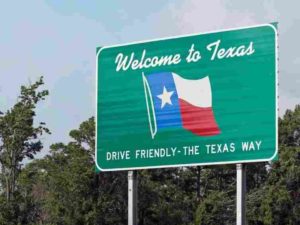 The defendant in Porturas v. Anglobaldo argued that as a citizen of Peru, she was not subjet to personal jurisdiction. But the Fifth Court affirmed the rejection of her special appearance, because she had been personally served with process in Texas. No. 05-23-00919-CV (July 22, 2024) (mem. op.) (applying Burnham v. Superior Court, 495 U.S. 604 (1990)).
The defendant in Porturas v. Anglobaldo argued that as a citizen of Peru, she was not subjet to personal jurisdiction. But the Fifth Court affirmed the rejection of her special appearance, because she had been personally served with process in Texas. No. 05-23-00919-CV (July 22, 2024) (mem. op.) (applying Burnham v. Superior Court, 495 U.S. 604 (1990)).
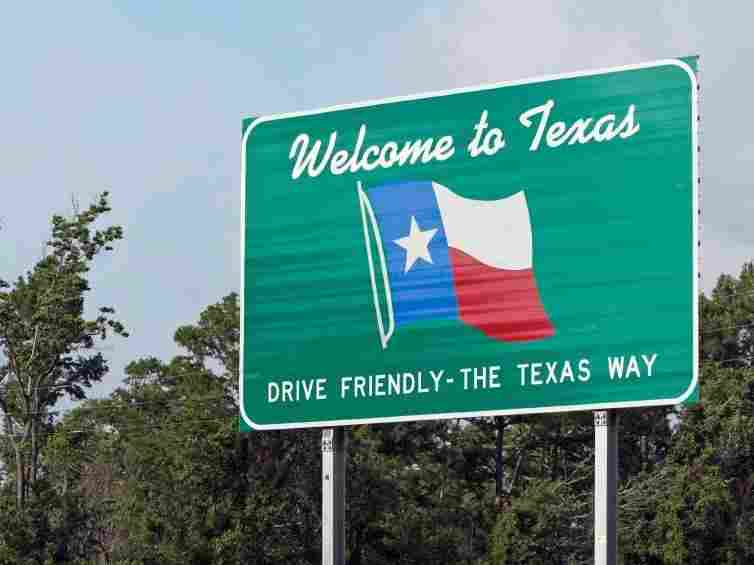 Mode, a Texas-based provider of transportation services, had a contract with Boyer (and later, his company, MTSI) to act as its sales agent. After some years under the contract, Boyer sought to sell MTSI to an unrelated company called MX, while also discussing a potential sale of MTSI to Mode.
Mode, a Texas-based provider of transportation services, had a contract with Boyer (and later, his company, MTSI) to act as its sales agent. After some years under the contract, Boyer sought to sell MTSI to an unrelated company called MX, while also discussing a potential sale of MTSI to Mode.
When Mode learned of the Boyer-MX communications, it sued all three parties (Boyer, MTSI, and MX) for taking trade secrets; Boyer and MTSI for breach of their sales-rep contract with Mode; and MX for tortiously interfering with that contract.
The Fifth Court affirmed the denial of the special appearance made by Boyer and MTSI, noting that significant business they conducted in Texas pursuant to their relationship with Mode. But the Court reversed the denial of MX’s special appearance, noting recent Texas and U.S. Supreme Court opinions about “stream of commerce” jurisdictional issues, and nevertheless concluding: “Mode seeks to premise specific jurisdiction over MX based on the ‘directed a tort’ or ‘effects’ theory” that the Texas Supreme Court has rejected. Boyer v. Mode Transp., LLC, No. 05-23-00008-CV (Oct. 4, 2023) (mem. op.).
Boyer v. Mode Transp., LLC, decided by the Fifth Court last week, provides a useful “update” of special-appearance law after some recent Texas and U.S. Supreme Court opinions, and I’ll have a post about it later in the week. A footnote involves an important practical issue in preparing a case for appeal:
The public clerk’s record will contain redacted versions of anything that was filed under seal, pursuant to a protective order, etc. Counsel has to identify such materials before briefing starts and find a way to get that material to the court of appeals before briefing begins. That often requires some coordination with the staff of both the relevant trial and appeals court.
While Texas law does not find personal jurisdiction when the defendant “directs a tort” toward Texas with out-of-state activity, the analysis changes when the tort is, in fact, committed in Texas:
Trinity is registered with the Texas Secretary of State and operates a regional service center in Euless, Texas, which employs a manager and thirty-three employees. The record reflects Trinity recruited and employed Evenflow and Manselle while both were still working for TTS, and during such time Manselle disclosed to Trinity TTS’ confidential business information related to Texas customers and interfered with TTS’ business in Texas. Trinity’s regional service center in Texas permitted Trinity to capitalize on confidential and proprietary information concerning TTS’ customers and business operations in Texas. In fact, in the twelve months following Trinity’s appropriation of TTS’ confidential business information, Trinity earned approximately $475,000 in recurring Texas-based business.
TTS LLC v. Evenflow LLC, No. 05-22-00770-CV (Sept. 15, 2023) (mem. op.). The court also noted an interesting counterpoint to the often-cited principle that “[w]hen a trial court does not issue findings of fact and conclusions of law with its special appearance ruling, all facts necessary to support the judgment and supported by the evidence are implied”; namely, that “[a]lthough the trial judge acts as the factfinder and must resolve any factual disputes in the special-appearance evidence, the judge must accept as true any clear, direct, and positive evidence presented in an undisputed affidavit.” (citations omitted).
While the Supreme Court issued several opinions in Mallory v. Norfolk Southern Railway, No. 21–1168 (U.S. June 27, 2023), the part joined by a five-justice majority is straightforward. A condition for registering to do business in Pennsylvania is consent to be sued there, and the Court held that condition did not raise a due-process concern, reaffirming the validity of much older precedent on the point. Justice Jackson’s concurrence helpfully distinguishes the concepts of waiver and “minimum contacts.” No. 21-1168 (U.S. June 27, 2023).
Texas’s special-appearance process requires, as the second step, that the defendant bring forward evidence to negate the plaintiff’s averments about longarm jurisdiction.
The defendant’s affidavit in Nusret Dallas LLC v. Regan said the following;
The Fifth Court found that paragraphs 2-3 and 5-7 did not negate the plaintiff’s allegations. Paragraphs 4 and 8 addressed the general topic of the plaintiff’s allegations, but did not “squarely meet or negate” their substance. Paragraph 9 “is conclusory … and legally constitues no evidence.” No. 05-21-00739-CV (June 23, 2023) (mem. op.). The Court went on to review the merits of the plaintiff’s allegations and reversed the grant of the defendant’s special appearance.
A trust administrator based in South Dakota was not subject to personal jurisdiction in Texas: “South Dakota Trust Company is a trustee in a passive role in that its roles and duties are limited and there is no evidence it sought to conduct business in Texas. Indeed, the Trusts are managed completely in South Dakota. Similarly, the fact that the Trusts’ beneficiaries are Texas residents is insufficient to assert jurisdiction over South Dakota Trust Company.” Willow Tree Consulting Group LLC v. South Dakota Trust Co., LLC, No. 05-22-00176-CV (June 1, 2023).
 The winner of a substantial judgment in the Mexican courts, sought to domesticate the judgment in Texas under the Uniform Foreign Currency Money Judgments Recognition Act (referred to by the less-than-catchy acronym of “UFCMJRA.”)
The winner of a substantial judgment in the Mexican courts, sought to domesticate the judgment in Texas under the Uniform Foreign Currency Money Judgments Recognition Act (referred to by the less-than-catchy acronym of “UFCMJRA.”)
Dynaresource conceded that “the purported judgment debtor has no ties, no presence, and no assets in the forum state.”
The Fifth Court held that as a matter of due process, UFCMJRA could not be applied in such circumstances. The Court also concluded that a special appearance was the proper procedural vehicle to raise this challenge, and distinguished two earlier Houston cases on the general topic as involving a different jurisdictional issue and and a repealed statute. Dynaresource de Mexico S.A. de C.V. v. Goldgroup Resources, Inc., No. 05-21-00362-CV (May 2, 2023).
The issue in this case is not directly related to Mallory v. Norfolk Southern Railway Co. presently before the U.S. Supreme Court about the jurisdictional consequence of registering to do business in a state, but it involves a somewhat-similar interplay of a statute with traditional minimum-contacts principles.
 Monkedia, a Texas-based LLC, loaned $40,000 to Sevenly, a business based in North Carolina. Monkedia sued Sevenly in Texas when a payment dispute arose, and the Fifth Court reversed the denial of Sevenly’s special appearance in Sevenly Outfitters LLC v. Monkedia LLC.
Monkedia, a Texas-based LLC, loaned $40,000 to Sevenly, a business based in North Carolina. Monkedia sued Sevenly in Texas when a payment dispute arose, and the Fifth Court reversed the denial of Sevenly’s special appearance in Sevenly Outfitters LLC v. Monkedia LLC.
The Fifth Court summarized the law in this area as follows:
- Yes jurisdiction: “[T]he courts of appeals of this state have generally found a nonresident defendant purposefully avails itself of this forum when it contracts with a Texas resident as a result of its solicitation of the Texas resident,” citing a 2017 First Court opinion about a similar interstate loan transaction.
- No jurisdiction: “When the solicitation runs the other way and the plaintiff solicits business with the nonresident defendant, we have concluded there was no specific jurisdiction over the nonresident defendant, even though the defendant made payments to Texas under a contract that includes a Texas choice of law provision.”
- Also no jurisdiction: “[W]hen the record is silent as to which party solicited the others business, courts have found the defendant did not purposefully avail itself of the forum.”
Accordingly, Texas courts lacked jurisdiction over Sevenly. While the reocrd showed some communications between the parties that involved Texas, “[a]bsent in the record … is any allegation or evidence showing that Sevenly solicited Monkedia’s business or that Monkedia was engaged by Sevenly to market Sevenly’s products to Texas customers.” No. 05-22-00096-CV (April 19, 2023) (mem. op.).
 A long-running jurisdictional dispute, on remand from the Texas Supreme Court after that court’s resolution of a procedural issue, produced a thorough analysis of personal jurisdiction in Chen v. Razberi Technologies, Inc. Among other practical points, the opinion reminds that “[w]hile it is often relevant to the inquiry, the focus is on the relationship between the defendant, the forum, and the litigation, not the plaintiff, the forum, and the litigation.” (citation omitted, emphasis added).
A long-running jurisdictional dispute, on remand from the Texas Supreme Court after that court’s resolution of a procedural issue, produced a thorough analysis of personal jurisdiction in Chen v. Razberi Technologies, Inc. Among other practical points, the opinion reminds that “[w]hile it is often relevant to the inquiry, the focus is on the relationship between the defendant, the forum, and the litigation, not the plaintiff, the forum, and the litigation.” (citation omitted, emphasis added).
Here, “The connection between the Modrys’ causes of action and Texas is not weak because, like the other investors, they claim to have suffered harm in Texas when they entered into the Stock Purchase Agreement in Texas with a Texas-based company as a result of its director’s and majority shareholder’s misrepresentations and omissions.” No. 05-19-01551-CV (Nov. 8, 2022).
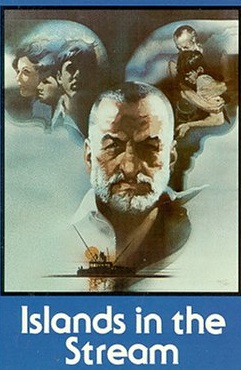 After a recent ruling about appropriate jurisdictional discovery in a stream-of-commerce case, the Fifth Court reviewed the merits of a special appearance in another such matter in Far East Machinery Co. v. Aranzamendi. Applying the current state of the law, including recent relevant opinions from both the Texas and United State Supreme Courts, the Court found that the record as to the following alleged contacts was insufficient to support personal jurisdiction in Texas over a claim about natural gas leaks from allegedly defective pipe:
After a recent ruling about appropriate jurisdictional discovery in a stream-of-commerce case, the Fifth Court reviewed the merits of a special appearance in another such matter in Far East Machinery Co. v. Aranzamendi. Applying the current state of the law, including recent relevant opinions from both the Texas and United State Supreme Courts, the Court found that the record as to the following alleged contacts was insufficient to support personal jurisdiction in Texas over a claim about natural gas leaks from allegedly defective pipe:
- “arranging for the shipping of its products to the Port of Houston;
- some or all of the pipe was marked “FEMCO HOUSTON TX” and Far East Machinery’s deputy manager admitted Far East Machinery marked the pipe “FEMCO”;
- Far East Machinery has a website accessible in Texas advertising that its products meet certain standards of the American Petroleum Institute, and Far East Machinery stated on the sales documentation that the pipe had been tested and met those specifications;
- Far East Machinery has been involved in litigation in federal court in the Eastern District of Texas; and
- Far East Machinery’s deputy manager travels to Texas once a year.”
No. 05-21-00267-CV (Sept. 13, 2022) (mem. op.) (bullet points added).
 In In re Smith & Nephew Orthopaedics Ltd., a dispute about “stream of commerce” personal jurisdiction, the Fifth Court observed:
In In re Smith & Nephew Orthopaedics Ltd., a dispute about “stream of commerce” personal jurisdiction, the Fifth Court observed:
As the Texas Supreme Court recently explained in Christianson Air Conditioning and Plumbing, a products liability case, ‘information sought in jurisdictional discovery must be essential to prove at least one disputed factor that is necessary to the plaintiff’s proposed theory or theories of personal jurisdiction.’ In that case, the supreme court observed that simply inserting the phrase ‘in Texas’ or ‘in Texas field conditions’ into a topic, as the plaintiffs in that case did, would not make it essential to prove specific jurisdiction.”
(citations omitted). Applying those principles, the Court reviewed ten corporate-representative deposition topics and held: “[T]he topics are too broad as they seek non-essential information that will not support [Plaintiffs’] stream-of-commerce plus theory.” No. 05-22-00495-CV (Sept. 16, 2022) (mem. op.).
My colleague Kyle Gardner and I wrote this article for the most recent Headnotes about two cases–one federal, one state–that summarize basic personal-jurisdiction principles for Texas in business cases.
An out-of-state guarantor was subject to suit in Texas when
Whited personally guaranteed the performance and payment of “any and all financial, credit or business obligations” that one Texas company owed to another Texas company. [1] These obligations were those of a managing general agent as defined by the Texas Administrative Code and the Texas Insurance Code. [2] He agreed that his guaranty would be “interpreted by, construed in accordance with, and governed by the laws of the State of Texas.” Moreover, the agreement he guaranteed included another such Texas choice-of-law clause as well as a Texas forum-selection clause. Both his guaranty and the MGA obligations he guaranteed were performable in Dallas County, Texas. [3] Old American agreed to appoint Windhaven as its managing general agent after Whited agreed to execute this guaranty. According to the guaranty agreement, Whited agreed to it because he “desire[d] to continue the appointment of [Windhaven] a [sic] Texas Managing General Agency to act as [Old American’s] Managing General Agent”; he “wish[ed] to facilitate such continuing appointment”; and he wished to increase Old American’s financial security.
Whited v. Old American County Mut, Fire Ins. Co., 05-21-00536-CV (June 16, 2022) (mem. op.) (references added).
 Out-of-state business dealings with effects in Texas present a continuing challenge in special-appearance proceedings. One set of such dealings resulted in reversal of the grant of a special appearance in Halperin v. Moreno:
Out-of-state business dealings with effects in Texas present a continuing challenge in special-appearance proceedings. One set of such dealings resulted in reversal of the grant of a special appearance in Halperin v. Moreno:
“[T]his case involves more than the ‘the presence of property in a state.’ The deed of trust and the HELOC were between a Texas borrower (Moreno) and a lender and trustee (Waguespack) with—according to the documentation—a Texas-based mailing address. The HELOC set Texas as the place where the loan contract would be performed. The HELOC was secured by a house located in Texas, and the deed of trust is governed by Texas law. It is undisputed that the HELOC was assigned to MOR KM, which maintains its principal office and place of business in Texas. The HELOC note and the loan documentation evince a clear, specific intent by Waguespack to purposefully direct conduct towards Texas for the benefit of her brother, a Texas resident.”
No. 05-21-00390-CV (March 9, 2022) (mem op.). See also MBM Family Trust No. 1. v. GE Oil & Gas, No. 05-20-01103-CV, 2021 WL 4236874 (Tex. App.—Dallas Sept. 17, 2021, no pet.) (mem. op.) (reaching similar conclusion about related transaction).
The denial of a special appearance by a Florida-based real estate broker was affirmed after the Fifth Court noted these facts:
- “Though appellants’ solicitations involved the sale of Florida property, they knew from Mr. Bernstein’s mailing address that they were soliciting a Texas resident who was thus subject to Texas laws, including property-ownership laws. Appellants had a ‘say in the matter’ as to whether to reach out to solicit business in Texas.”
- “Here, unlike in [Bryan v. Gordon, 384 S.W.3d 908 (Tex. App.–Houston [14th Dist.] 2012, no pet.)], Mr. Bernstein made no initial request for contact. Instead, appellants ‘initially targeted’ Mr. Bernstein, whom they knew to be a Texas resident, as a client.”
- “Though appellants contend ‘everything’ for which they are being sued ‘occurred in Florida,’ the record shows the Bernsteins’ claims are directly based on alleged misrepresentations appellants made during the solicitations and the resulting contract allegedly induced by those misrepresentations. Thus, appellants’ contacts are substantially connected to the litigation’s operative facts.”
Ringham v. Bernstein, No. 05-21-00526-CV (Jan. 5, 2022) (mem. op.).
 The appellant in Square 9 Softworks v. SIPS Consults Corp. appealed the denial of its special appearance, arguing that because it proved itself to be a nonresident, that showing sufficed in the absence of adequate jurisdictional allegations. Unfortunately, it did not appeal the striking of the declaration that would have established that matter:
The appellant in Square 9 Softworks v. SIPS Consults Corp. appealed the denial of its special appearance, arguing that because it proved itself to be a nonresident, that showing sufficed in the absence of adequate jurisdictional allegations. Unfortunately, it did not appeal the striking of the declaration that would have established that matter:
“In this case, however, even if we assume SIPS failed to plead sufficient jurisdictional facts, the only evidence submitted by Square 9 to prove it was not a Texas resident, and the only evidence it points to on appeal, is the sworn declaration signed by Frattini that was struck in its entirety from the record by the trial court. Square 9 does not challenge the trial court’s striking of the sworn declaration. Accordingly, we cannot consider the declaration as part of the evidence to be considered on appeal.”
No. 05-20-01116-CV (Oct. 11, 2021) (mem. op.)
 The successful party in an arbitration obtained confirmation of the award before the trial court ruled on the other party’s special appearance. The Fifth Court reversed, citing TRCP 84 and 120a as well as its own precedent: “Jayco was entitled to have its special appearance adjudicated prior to any decision on the merits. The rules of civil procedure give a trial court no discretion to hear a plea or pleading, including a motion to confirm an arbitration award, before hearing and determining a special appearance.” Jayco Hawaii LLC v. Viva Railings, LLC, No. 05-20-00528-CV (Aug. 25, 2021) (mem. op.) (citations omitted, emphasis added).
The successful party in an arbitration obtained confirmation of the award before the trial court ruled on the other party’s special appearance. The Fifth Court reversed, citing TRCP 84 and 120a as well as its own precedent: “Jayco was entitled to have its special appearance adjudicated prior to any decision on the merits. The rules of civil procedure give a trial court no discretion to hear a plea or pleading, including a motion to confirm an arbitration award, before hearing and determining a special appearance.” Jayco Hawaii LLC v. Viva Railings, LLC, No. 05-20-00528-CV (Aug. 25, 2021) (mem. op.) (citations omitted, emphasis added).
An en banc majority opinion, overruling prior case law to the contrary, held “that the plaintiff must meet its initial burden on a special appearance by pleading, in its petition, sufficient allegations to invoke jurisdiction under the Texas long-arm statute.” (emphasis in original). (Relatedly, under the relevant supreme court precedent, “[t]he plaintiff’s response to the special appearance may contain evidence supporting the petition’s jurisdictional allegations, but that evidence must be consistent with the allegations in the petition.”) Steward Health Care System LLC v. Saidara, No. 05-19-00274-CV (Aug. 20, 2021). Other opinions were written.
 Mike Nomad (right) would have been at home in Forever Living Products, Int’l, LLC v. AV Europe GMBH, No. 05-20-00558-CV (July 30, 2021), a personal-jurisdiction appeal in which the record failed to show where the defendant corporation was based. The Fifth Court found that the plaintiff’s pleading asserted general jurisdiction over the defendant; the defendant sought to negate that basis for jurisdiction with affidavits about the location of its “nerve center.” The Court found that while the defendant had substantial connections to Germany at other points in time, in the relevant months leading up to the filing of suit its evidence was legally insufficient to negate general jurisdiction:
Mike Nomad (right) would have been at home in Forever Living Products, Int’l, LLC v. AV Europe GMBH, No. 05-20-00558-CV (July 30, 2021), a personal-jurisdiction appeal in which the record failed to show where the defendant corporation was based. The Fifth Court found that the plaintiff’s pleading asserted general jurisdiction over the defendant; the defendant sought to negate that basis for jurisdiction with affidavits about the location of its “nerve center.” The Court found that while the defendant had substantial connections to Germany at other points in time, in the relevant months leading up to the filing of suit its evidence was legally insufficient to negate general jurisdiction:
“AV Europe’s own evidence shows that its managing director has lived in Texas full-time since July 2018. It also shows that since June 2018 AV Europe ‘has been winding down,” which implies some level of activity, and that its activities have included at least the return of unsold products to HW&B. We see no evidence showing the location from which Hardy [the directpr] or any other AV Europe officer (if any) controlled these activities. We therefore conclude that the evidence was legally insufficient to show that AV Europe’s nerve center was outside of Texas from June 2018 until the filing of suit in January 2019.”
In Luciano v. SprayFoamPolymers LLC, No. 18-0350 (Tex. June 25, 2021), while the Texas Supreme Court said in a footnote that it was not addressing this specific question, its holding suggests that Texas’s focus on the “operative facts” of a case continues to have force in personal-jurisdiction disputes after the U.S. Supreme Court’s recent opinion in Ford Motor Co. v. Montana Eighth Judicial District Court, 141 S. Ct. 1017 (2021): “Because the United States Supreme Court has confirmed that due process does not mandate a causation-only approach, we reject SprayFoam’s narrow conception of the relatedness requirement. Instead, we apply the Supreme Court’s precedent to determine whether the Lucianos’ suit “arise[s] out of or relate[s] to” SprayFoam’s Texas contacts.”
 The defendants in Chen v. Razberi Technologies lost a special appearance and took an interlocutory appeal. But before resolution of the appeal, the trial court entered final judgment against the defendants, who did not file an additional notice of appeal. A Fifth Court panel concluded that “[t]he special appearance order merged into the final judgment mooting this interlocutory appeal. ” In later proceedings, the Court denied en banc review, over a detailed dissent. No. 05-19-01551-CV (April 28, 2021).
The defendants in Chen v. Razberi Technologies lost a special appearance and took an interlocutory appeal. But before resolution of the appeal, the trial court entered final judgment against the defendants, who did not file an additional notice of appeal. A Fifth Court panel concluded that “[t]he special appearance order merged into the final judgment mooting this interlocutory appeal. ” In later proceedings, the Court denied en banc review, over a detailed dissent. No. 05-19-01551-CV (April 28, 2021).
 Kaufman v. AmeriHealth Lab reviewed an important practical issue–does active participation in a TRO proceeding waive a potential special appearance? After reviewing the handful of Texas cases on the point, the Court concluded that a waiver occurred when, during the TRO hearing: “Kaufman’s counsel appeared without limiting his appearance and actively made arguments on Kaufman’s behalf, which included arguing he was not a signatory to the consulting agreement. AmeriHealth reminded the court that the parties retired to the jury room, at the court’s suggestion, to work out the expedited discovery requests. After their discussions, they proceeded on the record. The second half of the hearing in our appellate record is titled, ‘Rule 11
Kaufman v. AmeriHealth Lab reviewed an important practical issue–does active participation in a TRO proceeding waive a potential special appearance? After reviewing the handful of Texas cases on the point, the Court concluded that a waiver occurred when, during the TRO hearing: “Kaufman’s counsel appeared without limiting his appearance and actively made arguments on Kaufman’s behalf, which included arguing he was not a signatory to the consulting agreement. AmeriHealth reminded the court that the parties retired to the jury room, at the court’s suggestion, to work out the expedited discovery requests. After their discussions, they proceeded on the record. The second half of the hearing in our appellate record is titled, ‘Rule 11
Agreement Proceeding.'” No. 05-20-00504-CV (Oct. 30, 2020) (mem. op.).
A lurid invasion-of-privacy dispute offers a procedural reminder and substantive conclusion:
- Procedure: “MYR’s invasion of privacy claim was not “buried” in the pleading. Rather, her cause of action was clearly pleaded. She included additional jurisdictional facts in the affidavit attached to her response, to which BGC did not object, to support her burden. She did not add a new claim in her response. Accordingly, we consider whether BGC is subject to specific jurisdiction in Texas in light of MYR’s first amended pleading and response.”
- Substance: “BGS’s contacts in Texas with MYR were not random and isolated, but instead constituted purposeful, continued contacts in Texas over the course of a three-year relationship. And while he contends he did not seek any benefit from the state, he actively pursued a relationship with a Texas resident, whom he allegedly persuaded to provide intimate photos, and he likewise secretly took photos of her while in Texas. One may speculate about the benefit BGC received from the taking of such photos, but to say he received no benefit from a Texas resident is incredulous.”
BGC v. MYR, No. 05-20-00318-CV (Oct. 9. 2020) (mem. op.).
(An expanded version of this post appears this week in the Texas Lawbook.)
Cyberpunk stories often describe the physical world as meatspace, as distinct from the online world of cyberspace. Litigation forces courts to consider the connection between the two “spaces” when a party contests the exercise of personal jurisdiction based on online activity. While precise definition of a website’s functionality can involve technical terms, the jurisdiction analysis involves familiar concepts, as illustrated by Shopstyle, Inc. & Popsugar, Inc. v. Rewardstyle, Inc.:
Purposeful availment. “[W]hen using the Shop feature, the user cannot purchase products on the PopSugar website but instead follows links to the websites of affiliated third-party retailers. In other words, the ‘user cannot consummate a commercial transaction online without accessing and logging-into a third-party website.'”
Operative facts. “Whether PopSugar’s website is available in Texas or whether links to Texas-based retailers are available on PopSugar’s website is unrelated to the operative facts as alleged by rewardStyle. The record contains no allegations or evidence of which we are aware that the alleged operative conduct occurred in Texas or that it has anything to do with Texas, apart from the fact that rewardStyle and one of its influencers are located here.”
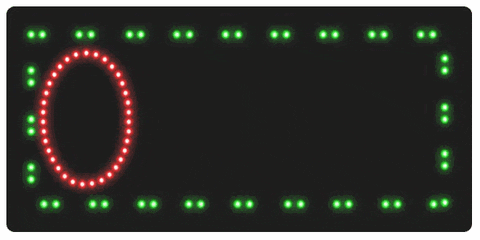 Third-party activity. “[E]even if another party creating ShopStyle links and adding them to allegedly misappropriated images was considered an affirmative act by ShopStyle (and we are not so concluding), permitting hyperlinks to the websites of third-party Texas-based retailers where products can be purchased “would not demonstrate, by itself, that [ShopStyle] controls the third-party sufficiently for sales from the third-party’s website to constitute ‘contacts’ by [ShopStyle].”
Third-party activity. “[E]even if another party creating ShopStyle links and adding them to allegedly misappropriated images was considered an affirmative act by ShopStyle (and we are not so concluding), permitting hyperlinks to the websites of third-party Texas-based retailers where products can be purchased “would not demonstrate, by itself, that [ShopStyle] controls the third-party sufficiently for sales from the third-party’s website to constitute ‘contacts’ by [ShopStyle].”
No. 05-19-00736-CV (July 21, 2020) (mem. op.). Of procedural interest, this case arose from a presuit discovery request under Tex. R. Civ. P. 202.
 In re Perl granted mandamus relief as to jurisdictional discovery requests.
In re Perl granted mandamus relief as to jurisdictional discovery requests.
As to scope, it reasoned (as to one set of the requests): “Interrogatory No. 2’s request for “details of how business is conducted between” Relators and Cake Craft, Interrogatory No. 8’s request for Relators’ “work, role and/or services” to Cake Craft, Request for Production No. 5’s requests for documents “regarding your engagement and business relationship” with Cake Craft, and Request for Production No. 15’s request for documents “that detail the inspecting and auditing services that you performed on the Cake Craft defendants” do not focus on any jurisdictional fact. None of these requests are confined to any of the three purposeful availment factors: Relators’ own activities, aimed at Texas, or the specific benefit, advantage, or profit Relators would earn from a Texas relationship.” (emphasis added)
As to adequate remedy, in response to the argument that “the only injury claimed is the ordinary expense of litigation,” the Court observed: “[A]llowing discovery of a potential claim against a defendant over which the court would not have personal jurisdiction denies him the protection Texas procedure would otherwise afford.” No. 05-20-00170-CV (June 2, 2020). LPHS represented the real parties in interest in this case.
 “[W]e decline to extend the Supreme Court’s holding in Burnham to find personal jurisdiction over James in all of his capacities simply because he was served in his individual capacity while present in Texas. Such a holding would conflict with the consistent position taken by Texas courts that actions taken by an individual in a representative capacity are separate and distinct from actions taken in an individual’s personal capacity.” Hanschen v. Hanschen, No. 05-19-01134-CV (May 28, 2020) (mem. op.) A concurrence noted: “We did not conclude whether the trial court could obtain personal jurisdiction over James in his representative capacities in the future if he were to be served properly in those capacities.”
“[W]e decline to extend the Supreme Court’s holding in Burnham to find personal jurisdiction over James in all of his capacities simply because he was served in his individual capacity while present in Texas. Such a holding would conflict with the consistent position taken by Texas courts that actions taken by an individual in a representative capacity are separate and distinct from actions taken in an individual’s personal capacity.” Hanschen v. Hanschen, No. 05-19-01134-CV (May 28, 2020) (mem. op.) A concurrence noted: “We did not conclude whether the trial court could obtain personal jurisdiction over James in his representative capacities in the future if he were to be served properly in those capacities.”
In a detailed review of whether certain pretrial activity waived a special appearance, the Fifth Court reminded: “Examples of actions a party can take without waiving a special appearance are (1) filing a motion for continuance relating to discovery on a motion to quash service; (2) serving nonjurisdictional discovery requests; (3) filing a motion to compel nonjurisdictional discovery but not scheduling a hearing or obtaining a ruling on the motion; (4) litigating a jurisdictional discovery dispute; (5) litigating other disputes that are factually related to the special appearance; or (6) litigating opposition to merits-based discovery sought by another party.”
Applying these principles, the Court concluded that no waiver occurred by (1) “filing an obtaining a ruling on a Motion to Vacate Judgment and Protective Order,” (2) participating in discovery, including responding to a request for disclosures, and (3) filing a sanctions motion based on Tex. R. Civ. P. 13, which in part touched on the allegations relevant to the jurisdiction dispute. Brady v. Kane, No. 05-18-01105-CV (April 28, 2020) (mem. op.).
 Liederman, a New York lawyer, sent seventy-seven emails to Texas, made five phone calls there, and signed and delivered three tolling agreements to Davis, a Texas-based attorney, “over a span of three years in working towards settling appellees’ claims.” The Fifth Court found no specific personal jurisdiction, observing: “Liederman could have ‘quite literally’ interacted with Davis, who could have been anywhere in the world, in the same manner. . . . It is apparent that Invasix’s contacts with Davis were based on her representation of the nonresident plaintiffs in the personal injury lawsuit and had nothing to do with the State of Texas.” Invasix, Inc. v. James, No. 05-19-00494-CV (Feb. 25, 2020) (mem. op.) (emphasis added). The Court also found no general personal jurisdiction, applying recent Texas and United States Supreme Court opinions that have limited the scope of that doctrine.
Liederman, a New York lawyer, sent seventy-seven emails to Texas, made five phone calls there, and signed and delivered three tolling agreements to Davis, a Texas-based attorney, “over a span of three years in working towards settling appellees’ claims.” The Fifth Court found no specific personal jurisdiction, observing: “Liederman could have ‘quite literally’ interacted with Davis, who could have been anywhere in the world, in the same manner. . . . It is apparent that Invasix’s contacts with Davis were based on her representation of the nonresident plaintiffs in the personal injury lawsuit and had nothing to do with the State of Texas.” Invasix, Inc. v. James, No. 05-19-00494-CV (Feb. 25, 2020) (mem. op.) (emphasis added). The Court also found no general personal jurisdiction, applying recent Texas and United States Supreme Court opinions that have limited the scope of that doctrine.
The Fifth Court reversed the denials of several special appearances in a high-profile securities case, when the plaintiffs “explicitly allege that their causes of action under sections 11 and 12 are ‘based solely on negligence and/or strict liability,'” and thus had the burden to prove only the “adverse facts that existed at the time” of the relevant offerings and its effect on the underlying business. The Court concluded that the “operative facts” related to those particular issues “are not substantially connected to Texas.” 05-19-01177-CV (Jan. 26, 2020) (mem. op.) (applying, inter alia, Moncrief Oil v. Gazprom, 414 S.W.3d 142 (Tex. 2013)).
 In a fraudulent-transfer case, the Fifth Court reversed the denial of a German company’s special appearance when: “AEG Germany was not a party to the Manufacturing Agreement or the Security Agreement;it was not involved inthe “order process” with Power Max and AEG USA;nor was it a party to AEG USA’s lawsuit against Power Max. In fact, Creation has not alleged any contacts by AEG Germany with the state of Texas that ‘give rise’ to Creation’s claims against it, apart from the allegation that AEG Germany was the recipient of fraudulently transferred assets. . . . [A]s the above [“effects test”] cases show, even if we assume a tort was somehow committed and that AEG Germany knew its actions would cause an injury in Texas (assumptions this record does not support), the alleged contacts do not rise to the level of purposeful availment simply because Creation is a Texas company or the alleged harm occurred in Texas.” AEG Power Solutions v. Creation Technologies, No. 05-19-00195-CV (Nov. 12, 2019) (mem. op.)
In a fraudulent-transfer case, the Fifth Court reversed the denial of a German company’s special appearance when: “AEG Germany was not a party to the Manufacturing Agreement or the Security Agreement;it was not involved inthe “order process” with Power Max and AEG USA;nor was it a party to AEG USA’s lawsuit against Power Max. In fact, Creation has not alleged any contacts by AEG Germany with the state of Texas that ‘give rise’ to Creation’s claims against it, apart from the allegation that AEG Germany was the recipient of fraudulently transferred assets. . . . [A]s the above [“effects test”] cases show, even if we assume a tort was somehow committed and that AEG Germany knew its actions would cause an injury in Texas (assumptions this record does not support), the alleged contacts do not rise to the level of purposeful availment simply because Creation is a Texas company or the alleged harm occurred in Texas.” AEG Power Solutions v. Creation Technologies, No. 05-19-00195-CV (Nov. 12, 2019) (mem. op.)
 In a win for our law firm, the Fifth Court rejected a personal jurisdiction theory based on alleged misrepresentations to a Texas business by a resident of Greece.”‘Even assuming that the phone calls, [e-mails, and video conference] were sufficiently connected to the claim, a proper minimum contacts analysis looks to the defendant’s contacts with the forum state itself, not the defendant’s contacts with persons who reside there.’ In addition, we have held, alleged ‘fraudulent or negligent misrepresentations made through electronic media do not establish specific jurisdiction.’ And as the supreme court concluded with respect to a Canadian entity in Searcy and based on the special appearance record, Theofanopoulos ‘had no control over’ where the executives of MoneyGram ‘happened to be located[,]’ ‘did not desire to create an ongoing relationship with Texas, enjoy the benefits of our laws, or profit from our thriving economy.'” MoneyGram v. Theofanopoulos, No. 05-17-00798-CV (July 6, 2018) (mem. op.) (citations omitted).
In a win for our law firm, the Fifth Court rejected a personal jurisdiction theory based on alleged misrepresentations to a Texas business by a resident of Greece.”‘Even assuming that the phone calls, [e-mails, and video conference] were sufficiently connected to the claim, a proper minimum contacts analysis looks to the defendant’s contacts with the forum state itself, not the defendant’s contacts with persons who reside there.’ In addition, we have held, alleged ‘fraudulent or negligent misrepresentations made through electronic media do not establish specific jurisdiction.’ And as the supreme court concluded with respect to a Canadian entity in Searcy and based on the special appearance record, Theofanopoulos ‘had no control over’ where the executives of MoneyGram ‘happened to be located[,]’ ‘did not desire to create an ongoing relationship with Texas, enjoy the benefits of our laws, or profit from our thriving economy.'” MoneyGram v. Theofanopoulos, No. 05-17-00798-CV (July 6, 2018) (mem. op.) (citations omitted).
 After rejecting the novel, but problematic, argument that a corporation chartered outside Texas could not invoke the Texas longarm statute, the Fifth Court found personal jurisdiction over a Louisiana car dealer that sold retail installment contracts to a Dallas-based financial business. The Court proceeded in three distinct steps, in a framework that helps impose order on recent changes in personal jurisdiction law. First, it evaluated minimum contacts for constitutional due process requirements (considering (1) only the defendant’s contacts with the forum, (2) acts that are “purposeful” rather than fortuitous, and (3) whether the defendant sought some benefit, advantage, or profit by “availing” itself of Texas); second, it examined the “relationship among the defendant, the forum[,] and the litigation” to determine whether specific jurisdiction was appropriate; and third, it reviewed whether fair play and substantial justice was satisfied. Winnsboro Auto Ventures LLC v. Santander Consumer USA, No. 05-17-00895-CV (April 19, 2018).
After rejecting the novel, but problematic, argument that a corporation chartered outside Texas could not invoke the Texas longarm statute, the Fifth Court found personal jurisdiction over a Louisiana car dealer that sold retail installment contracts to a Dallas-based financial business. The Court proceeded in three distinct steps, in a framework that helps impose order on recent changes in personal jurisdiction law. First, it evaluated minimum contacts for constitutional due process requirements (considering (1) only the defendant’s contacts with the forum, (2) acts that are “purposeful” rather than fortuitous, and (3) whether the defendant sought some benefit, advantage, or profit by “availing” itself of Texas); second, it examined the “relationship among the defendant, the forum[,] and the litigation” to determine whether specific jurisdiction was appropriate; and third, it reviewed whether fair play and substantial justice was satisfied. Winnsboro Auto Ventures LLC v. Santander Consumer USA, No. 05-17-00895-CV (April 19, 2018).
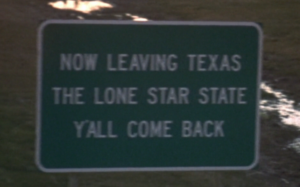 In a dispute about alleged undue influence on a Texas-based testator, in the context of evaluating the totality of the defendants’ contacts with Texas, the Fifth Court identified several Texas contacts that will not ordinarily establish personal jurisdiction:
In a dispute about alleged undue influence on a Texas-based testator, in the context of evaluating the totality of the defendants’ contacts with Texas, the Fifth Court identified several Texas contacts that will not ordinarily establish personal jurisdiction:
- Written communications in Texas, and personal visits to Texas, when no evidence “establishes what was said in any particular disputed conversation”;
- Simply being named in estate planning documents in a contingent position, when “none of those contingency appointments ever occurred” so the party “did not accept any benefits or obligations or take any action in any of these capacities”; and
- For alter ego, simply the “[f]ailure to observe corporate formalities” or the owner’s “taking a draw” from the company.
Karaa v. Aramoonie, No. 05-17-00571-CV (March 19, 2018).
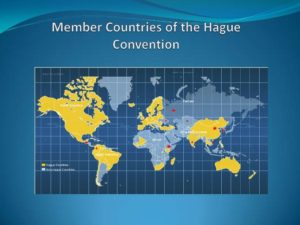 A Mexican company disputed personal jurisdiction in Texas, but ran afoul of special appearance procedure: “A special appearance that merely challenges the method of service fails as a special appearance and constitutes a general appearance. A complaint that a defendant was not served in acccordance with the Hague Convention is a complaint regarding a curable defect in service of process. Such a complaint does not defeat a nonresident’s amenability to the court’s process and thus should not be raised via a special appearance.” Vitro Packaging de Mexico v. Dubiel, No. 05-17-00258-CV (applying Kawasaki Steel Corp. v. Middleton, 699 S.W.2d 199, 202 (Tex. 1985)) (Dec. 13, 2017) (mem. op.) (citations omitted, emphasis added)
A Mexican company disputed personal jurisdiction in Texas, but ran afoul of special appearance procedure: “A special appearance that merely challenges the method of service fails as a special appearance and constitutes a general appearance. A complaint that a defendant was not served in acccordance with the Hague Convention is a complaint regarding a curable defect in service of process. Such a complaint does not defeat a nonresident’s amenability to the court’s process and thus should not be raised via a special appearance.” Vitro Packaging de Mexico v. Dubiel, No. 05-17-00258-CV (applying Kawasaki Steel Corp. v. Middleton, 699 S.W.2d 199, 202 (Tex. 1985)) (Dec. 13, 2017) (mem. op.) (citations omitted, emphasis added)
 Appellant filed a notice of appeal about a special appearance that was timely, measured from the ruling on a motion to amend and reconsider, but was not timely, when measured from the original ruling. The Fifth Court found that it was untimely: “The record here reflects the issue in the special appearance was whether the trial court could exercise specific jurisdiction over appellant. Appellant’s motion to amend and reconsider did not present any new arguments. Instead, it cited to decisions issued after the original order was signed, none of which changed the state of the law regarding specific jurisdiction. Because the motion to amend and reconsider presented no new argument, we conclude the amended order denying appellant’s special appearance was not independently appealable and agree with appellees that appellant should have filed its notice of appeal within twenty days of the signing of the original order.” Michelin North America v. Gallegos, No. 05-17-00617-CV (Nov. 21, 2017) (mem. op.)
Appellant filed a notice of appeal about a special appearance that was timely, measured from the ruling on a motion to amend and reconsider, but was not timely, when measured from the original ruling. The Fifth Court found that it was untimely: “The record here reflects the issue in the special appearance was whether the trial court could exercise specific jurisdiction over appellant. Appellant’s motion to amend and reconsider did not present any new arguments. Instead, it cited to decisions issued after the original order was signed, none of which changed the state of the law regarding specific jurisdiction. Because the motion to amend and reconsider presented no new argument, we conclude the amended order denying appellant’s special appearance was not independently appealable and agree with appellees that appellant should have filed its notice of appeal within twenty days of the signing of the original order.” Michelin North America v. Gallegos, No. 05-17-00617-CV (Nov. 21, 2017) (mem. op.)
 In recent years, the U.S. and Texas Supreme Court have been widely recognized as limiting the reach of long-arm personal jurisdiction. While the necessary showing is now more difficult in some case, it is far from impossible, as shown by Colmen LLC v. Santander Consumer USA, In that case, among other “[s]ince . . . 2015 . . . Colmen reached out to Santander in Texas to solicit the purchase of the fifty-two separate installment sales contracts at issue in this lawsuit. As required, for each individual contract, Colmen forwarded its proposed terms and conditions and all contractually required information, including customer credit-related information, to Santander’s offices in Texas.” No. 05-17-00101-CV (Nov. 3, 2017).
In recent years, the U.S. and Texas Supreme Court have been widely recognized as limiting the reach of long-arm personal jurisdiction. While the necessary showing is now more difficult in some case, it is far from impossible, as shown by Colmen LLC v. Santander Consumer USA, In that case, among other “[s]ince . . . 2015 . . . Colmen reached out to Santander in Texas to solicit the purchase of the fifty-two separate installment sales contracts at issue in this lawsuit. As required, for each individual contract, Colmen forwarded its proposed terms and conditions and all contractually required information, including customer credit-related information, to Santander’s offices in Texas.” No. 05-17-00101-CV (Nov. 3, 2017).
 Over the summer, the Fifth Court thoroughly summarized and applied the many recent Supreme Court (both U.S. and Texas) cases about personal jurisdiction in Northern Frac Proppants v. 2011 NF Holdings. Specifically, “this appeal presents this central specific jurisdiction question: Do non-Texas residents who acquire and sell Wisconsin sand mines and related rights purposefully avail themselves of Texas if (i) Texas companies claim to be the assets’ rightful owners and (ii) the non-residents know that much of the sand produced in Wisconsin will be sold to customers for use in Texas fracing operations?” The Court “conclude[d] that the answer is no based on this case’s particular facts.” No. 05-16-00319-CV (July 27, 2017) (mem. op.)
Over the summer, the Fifth Court thoroughly summarized and applied the many recent Supreme Court (both U.S. and Texas) cases about personal jurisdiction in Northern Frac Proppants v. 2011 NF Holdings. Specifically, “this appeal presents this central specific jurisdiction question: Do non-Texas residents who acquire and sell Wisconsin sand mines and related rights purposefully avail themselves of Texas if (i) Texas companies claim to be the assets’ rightful owners and (ii) the non-residents know that much of the sand produced in Wisconsin will be sold to customers for use in Texas fracing operations?” The Court “conclude[d] that the answer is no based on this case’s particular facts.” No. 05-16-00319-CV (July 27, 2017) (mem. op.)
 In a forceful statement against merits discovery before the resolution of a special appearance, the Fifth Court granted a writ of mandamus to require that “relator’s deposition be limited to matters directly relevant to the issue of jurisdiction if the deposition is taken before the trial court rules on relator’s special appearance,” because “Rule 120a requires discovery be limited to matters relevant to jurisdiciton prior to a ruling on a special appearance.” In re: Stanton, No. 05-17-00834-CV (Aug. 24, 2017) (mem. op.) (citing, inter alia, In re: Doe, 444 S.W.3d 603, 608 (Tex. 2014)).
In a forceful statement against merits discovery before the resolution of a special appearance, the Fifth Court granted a writ of mandamus to require that “relator’s deposition be limited to matters directly relevant to the issue of jurisdiction if the deposition is taken before the trial court rules on relator’s special appearance,” because “Rule 120a requires discovery be limited to matters relevant to jurisdiciton prior to a ruling on a special appearance.” In re: Stanton, No. 05-17-00834-CV (Aug. 24, 2017) (mem. op.) (citing, inter alia, In re: Doe, 444 S.W.3d 603, 608 (Tex. 2014)).
 The Fifth Court rejected the exercise of personal jurisdiction in Texas over a Mexican reinsurance broker in Cooper Gay Martinez del Rio y Asociados v. Elamex, S.A. de C.V., holding: “Cornerstone [Healthcare Group Holding, Inc. v. Nautic Management, 493 S.W.3d 65 (2016)] is distinguishable. CGM did not spearhead or direct appellees’ purchase of the Policy. CGM did not seek out appellees in Texas, insure appellees’ Texas assets, or seek to profit from business in Texas. Further, unlike in Cornerstone, there is no evidence CGM was created for or created subsidiary entities for the purpose of conducting business in Texas, and appellees do not allege this occurred. Rather, Elamex, a Mexican entity, contacted HUB, which began a chain of communications eventually leading to CGM, to find an insurer for its properties. Afirme, a Mexican entity that provided that Policy, sought reinsurance through CGM and paid a commission to CGM. At no point did CGM seek out a Texas company or Texas assets in order to benefit, profit, or take advantage of Texas such that it impliedly consented to suit here.” No. 05-16-01436-CV (Aug. 22, 2017) (mem. op.)
The Fifth Court rejected the exercise of personal jurisdiction in Texas over a Mexican reinsurance broker in Cooper Gay Martinez del Rio y Asociados v. Elamex, S.A. de C.V., holding: “Cornerstone [Healthcare Group Holding, Inc. v. Nautic Management, 493 S.W.3d 65 (2016)] is distinguishable. CGM did not spearhead or direct appellees’ purchase of the Policy. CGM did not seek out appellees in Texas, insure appellees’ Texas assets, or seek to profit from business in Texas. Further, unlike in Cornerstone, there is no evidence CGM was created for or created subsidiary entities for the purpose of conducting business in Texas, and appellees do not allege this occurred. Rather, Elamex, a Mexican entity, contacted HUB, which began a chain of communications eventually leading to CGM, to find an insurer for its properties. Afirme, a Mexican entity that provided that Policy, sought reinsurance through CGM and paid a commission to CGM. At no point did CGM seek out a Texas company or Texas assets in order to benefit, profit, or take advantage of Texas such that it impliedly consented to suit here.” No. 05-16-01436-CV (Aug. 22, 2017) (mem. op.)
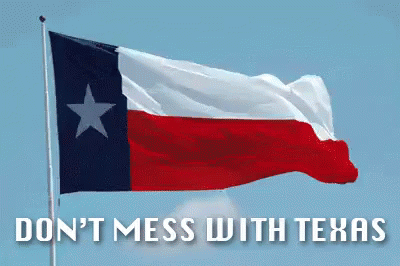 Two important concepts about personal jurisdiction were at issue in Celanese Corp. v. Salcedo Sahagun, a case about “Mexican nationals’ use of a Washington, D.C. publicist to disseminate defamatory statements directed at Texas and other markets as part of a national media campaign . . . .” The resolution of those questions turned in no small part on the nuances of how they were defined. The first question was whether a publicist was an agent (and thus, creating imputation) as opposed to an independent contractor; its resolution turned on whether the defendants “retained control over [her] manner and means of performance — regardless of whether they chose to exercise that right.” The second involved the reconciliation of cases applying Calder v. Jones; the Court approached that issue by focusing on “whether [defendants] intended to benefit from having the statements distributed in Texas, regardless of the route taken to get them there.” No. 05-16-00868-CV (Aug. 9, 2017) (mem. op.)
Two important concepts about personal jurisdiction were at issue in Celanese Corp. v. Salcedo Sahagun, a case about “Mexican nationals’ use of a Washington, D.C. publicist to disseminate defamatory statements directed at Texas and other markets as part of a national media campaign . . . .” The resolution of those questions turned in no small part on the nuances of how they were defined. The first question was whether a publicist was an agent (and thus, creating imputation) as opposed to an independent contractor; its resolution turned on whether the defendants “retained control over [her] manner and means of performance — regardless of whether they chose to exercise that right.” The second involved the reconciliation of cases applying Calder v. Jones; the Court approached that issue by focusing on “whether [defendants] intended to benefit from having the statements distributed in Texas, regardless of the route taken to get them there.” No. 05-16-00868-CV (Aug. 9, 2017) (mem. op.)
 A law firm’s former client sued for allegedly flawed tax advice; part of the basis for personal jurisdiction in Texas was the presence of a firm partner at a meeting with the IRS in Dallas. As to that point, the Fifth Court held: “On this record, we conclude there is no evidence of a substantial connection between Wolfe’s attendance at the June 2010 Dallas meeting and the operative facts of the litigation, i.e., whether appellants breached their fiduciary duties owed to Millennium when they ‘represented Hanson’ during the appeal of the 2009 audit and ‘continued to take positions’ during the June 2010 Dallas meeting that were ‘adverse to Millennium’s interests’ respecting the disputed tax benefits . . . . Therefore, Wolfe’s attendance at that meeting does not constitute a contact supporting specific jurisdiction.” The opinion reviews and rejects other arguments for personal jurisdiction, many of which appear (in various forms) in similar cases involving professional advice and state lines. Fried Frank v. Millennium Chemicals, No. 05-16-01132-CV (July 31, 2017) (mem op.)
A law firm’s former client sued for allegedly flawed tax advice; part of the basis for personal jurisdiction in Texas was the presence of a firm partner at a meeting with the IRS in Dallas. As to that point, the Fifth Court held: “On this record, we conclude there is no evidence of a substantial connection between Wolfe’s attendance at the June 2010 Dallas meeting and the operative facts of the litigation, i.e., whether appellants breached their fiduciary duties owed to Millennium when they ‘represented Hanson’ during the appeal of the 2009 audit and ‘continued to take positions’ during the June 2010 Dallas meeting that were ‘adverse to Millennium’s interests’ respecting the disputed tax benefits . . . . Therefore, Wolfe’s attendance at that meeting does not constitute a contact supporting specific jurisdiction.” The opinion reviews and rejects other arguments for personal jurisdiction, many of which appear (in various forms) in similar cases involving professional advice and state lines. Fried Frank v. Millennium Chemicals, No. 05-16-01132-CV (July 31, 2017) (mem op.)
In Deaton v. Johnson, the Fifth Court found that a Rhode Island lawyer’s retention pursuant to representation agreement governed by Texas law and “performable in Tarrant County, Texas” allowed the exercise of personal jurisdiction in Texas over that lawyer. No. 05-16-01221-CV (July 14, 2017) (mem. op.)
Plaintiff sued two insurance companies, headquartered out-of-state, who produced evidence that their business was limited to out-of-state activity. As to an allegation that the companies and their agents met in Toront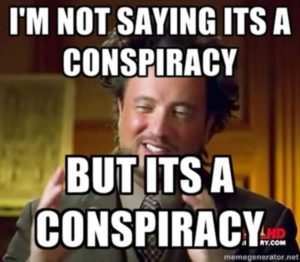 o where they “conspired to forge [Plaintiff’s signature,” the Court reminded that “the assertion of personal jurisdiction over a nonresident defendant may not be based solely upon the effects or consequences of an alleged conspiracy with a resident in the forum state.” Friend v. Acadia Holding Corp., No. 05-16-00286-CV (April 27, 2017) (applying Nat’l Indus. Sand Ass’n v. Gibson, 897 S.W.2d 769, 773 (Tex. 1995)).
o where they “conspired to forge [Plaintiff’s signature,” the Court reminded that “the assertion of personal jurisdiction over a nonresident defendant may not be based solely upon the effects or consequences of an alleged conspiracy with a resident in the forum state.” Friend v. Acadia Holding Corp., No. 05-16-00286-CV (April 27, 2017) (applying Nat’l Indus. Sand Ass’n v. Gibson, 897 S.W.2d 769, 773 (Tex. 1995)).
 If Dr. McCoy made his famous pronouncement, not as to an Enterprise crew member in a red shirt, but during litigation about another defendant by filing a “suggestion of death,” would he make a general appearance in that litigation? The Fifth Court answered “no” in Hegwer v. Edwards, primarily citing a line of cases holding that making and filing a Rule 11 agreement does not amount to a general appearance. No. 05-15-01464-CV (March 22, 2017).
If Dr. McCoy made his famous pronouncement, not as to an Enterprise crew member in a red shirt, but during litigation about another defendant by filing a “suggestion of death,” would he make a general appearance in that litigation? The Fifth Court answered “no” in Hegwer v. Edwards, primarily citing a line of cases holding that making and filing a Rule 11 agreement does not amount to a general appearance. No. 05-15-01464-CV (March 22, 2017).
Not so long arm of the law: no personal jurisdiction over out-of-state attorney who joint ventures with Texas counsel
July 18, 2016In Mitchell v. Freese & Goss, PLLC (July 15, 2016), the Dallas Court of Appeals considered an appeal of the denial of a special appearance by Mitchell, a Mississippi attorney sued in Dallas County by a Texas law firm, Freese & Goss. Mitchell and Freese & Goss had a joint venture to represent Mississippi clients in litigation in Mississippi. After the cases settled, there was a dispute over attorney’s fees. Mitchell sued Freese & Goss in Mississippi and Freese & Goss brought this suit in Dallas County alleging wrongful conduct by Mitchell adversely affecting the joint venture. Mitchell filed a special appearance, which was denied. Mitchell then filed an interlocutory appeal.
On appeal, Freese & Goss asserted that the trial court had personal jurisdiction over the claims against Mitchell because the dispute arose out of Mitchell’s contacts with Texas. Specifically, Mitchell had a business relationship with Freese & Goss for the purpose of litigating the Mississippi claims, Mitchell participated in meetings and phone calls with Freese & Goss, the suit concerned payments to be made by Freese & Goss, Mitchell solicited clients to sue Freese & Goss, and those acts were specifically directed toward causing injury to appellees in Texas.
The Dallas Court of Appeals reversed and rendered a judgment that the Court lacked personal jurisdiction over the claims asserted against Mitchell. It held that merely contracting with Freese & Goss, a Texas resident, is insufficient for jurisdictional purposes. The relationship focused on activities in Mississippi, where the litigation was to be conducted, and Freese & Goss’s unilateral activities in Texas were not relevant to the analysis. Nor did the fact that some of the clients eventually moved to Texas render Mitchell susceptible to suit in Texas because “the mere existence of an attorney-client relationship unaccompanied by other sufficient contacts with the forum, does not confer personal jurisdiction….” Finally, the fact that Mitchell might have caused their shared clients to sue Freese & Goss did not confer jurisdiction because his alleged activities took place in Mississippi, and it is not enough that the effects of a tort will be felt in Texas to confer personal jurisdiction. Because Mitchell did not purposefully avail himself the privilege of doing business in Texas, the Dallas Court of Appeals reversed and rendered judgment.
In the Battle of Animal Control vs. Ayn Rand, the Court of Appeals Washes Its Hands. As Should We All.
October 6, 2015One thing every lawyer in Texas learns early on is that if you want to challenge personal jurisdiction, you have to file a special appearance before you answer the petition. Critter Control, Inc. sought to avoid that waiver point by filing a motion to withdraw its original answer in favor of a subsequently filed special appearance, which the trial court denied. Critter Control filed for interlocutory appeal, and Galt Strategies, LLC filed a motion to dismiss for lack of appellate jurisdiction. The Court of Appeals dismissed the appeal because it did not challenge the denial of the special appearance, but the Court notably did not foreclose the stratagem of moving to withdraw the answer in order to assert the untimely special appearance.
Critter Control, Inc. v. Galt Strategies, LLC, No. 05-15-01011-CV
On July 10, the district court orally denied the special appearance of Ann Stokley. The court did not sign a written order, however, which left Stokley unable to pursue an interlocutory appeal. On September 15, Stokley filed a petition for writ of mandamus with the Dallas Court of Appeals. Two days later, that Court has issued a brief memorandum petition denying relief. Although a trial court abuses its discretion when it fails to rule within a reasonable time, the Court could not conclude that the trial court had done so here in light of “the trial court’s actual knowledge of the motion, whether its refusal to act is overt, the state of the court’s docket, and the existence of other judicial and administrative matters which must be addressed first.” Ms. Stokley will presumably pursue an interlocutory appeal sometime after the trial court issues a written order.
In re Stokley, No. 05-15-01110-CV
Readers may recall the recent dust-up over a collection of movie posters held by an auction house. In a new case, the disputed collection consists of Broadway theater window cards, which a Texas resident had shipped to an Internet reseller in Vermont. The owner filed suit in Dallas, alleging the reseller had breached the parties’ oral contract by failing to pay him for the cards sold, failing to return the unsold cards to him, and failing to safeguard the cards. The defendants filed a special appearance, which the trial court granted and the Court of Appeals affirmed. Although the primary defendant had made payment to the plaintiff in Texas, an agreement to make payments in the forum state does not weigh heavily in the “calculus of [minimum] contacts.” Although there were multiple conflicts in the parties’ accounts of their dealings, the Court of Appeals deferred to the trial court’s resolution of the factual discrepancies, and the remaining, undisputed facts did not demonstrate purposeful availment of Texas as a forum for the transactions at issue.
Klug v. Wickert, No. 05-14-00080-CV

Court Reverses Trial Court, Finding No Personal Jurisdiction Over Third-Party Defendant
July 1, 2015In this case involving corporate infighting, the defendant filed a third-party claim against Troy Brown. Mr. Brown filed a special appearance asserting that the court did not have personal jurisdiction, which the trial court denied. Mr. Brown appealed.
The Court of Appeals reversed, determining that Brown did not have minimum contacts with Texas such that he was subject to personal jurisdiction here. The Court specifically found that several emails Brown sent to people in Texas did not “constitute a contact demonstrating purposeful availment.”
Connie Sigel used a website to book an apartment in Paris (the one in France) for a seven-night vacation. During that stay, an intruder with keys to both the apartment and its safe stole most of Sigel’s possessions. Sigel sued the booking agency on multiple contract and tort claims. The trial court denied My Vacation Europe’s special appearance, but the Dallas Court of Appeals reversed and rendered. The Court held that Sigel’s act of accessing MVE’s website and renting an apartment while she was located in Dallas did not constitute a purposeful availment of Texas by MVE, and there was no evidence that MVE specifically targeted Texas residents for its services. The Court of Appeals also held that there could be no specific jurisdiction in Texas because the claims all arose from a burglary that occurred in France, meaning that the relationship between Texas and the operative facts of the litigation was too tenuous to support jurisdiction.
My Vacation Europe, Inc. v. Sigel, No. 05-14-00435-CV
Update: Threepeat. The dream is alive.
Cornerstone Healthcare owns and operates a group of hospitals located in several states. It filed suit against Nautic Management VI, the general partner or manager of several private equity funds. NMVI filed a special appearance to challenge personal jurisdiction, but the trial court overruled it. On interlocutory appeal, the Court of Appeals reversed and rendered judgment dismissing NMVI from the case. Cornerstone argued that NMVI should be subject to specific personal jurisdiction in Texas because it controlled the funds whose representatives had traveled to Texas and conducted the business that got them all sued. The Court of Appeals disagreed, holding Cornerstone to its word that it was not attempting to pierce the corporate veil and therefore refusing to attribute the contacts of the funds to NMVI.
Nautic Mgmt. VI, LP v. Cornerstone Healthcare Group Holding, Inc., No. 05-13-00859-CV
Trinity Structural Towers, Inc. sued two related companies: 1) Suzlon Wind Energy Corporation (Suzlon Wind), a Delaware corporation with its principal place of business in Texas, and 2) Suzlon Energy Company (Suzlon India), Suzlon Wind’s India-based parent company. Trinity sued both defendants for breach of contract and several related claims. Suzlon India filed a special appearance, arguing that it was not subject to personal jurisdiction in Texas, which the trial court denied.
On interlocutory appeal, the Court of Appeals reversed the trial court and dismissed Suzlon India from the case for lack of personal jurisdiction. Even though one of Suzlon India’s employees signed the contract at issue, the evidence was clear that the contract was between Trinity and Suzlon Wind, not Suzlon India. The Court also rejected Trinity’s argument that Suzlon India was acting as Suzlon Wind’s agent, noting that Trinity did not meet its burden under Texas law to prove an agency relationship.
Cornerstone Healthcare Group Holding, Inc., a provider of post acute care hospital services, was pursuing acquisition opportunities of rehabilitation facilities in Texas. In the midst of these efforts, several of its executives left the company. Around the same time, New Reliant, a Delaware limited liability company, acquired a rehabilitation hospital in Texas called “Old Reliant.” Cornerstone filed suit against New Reliant and a few other entities that had indirect ownership stakes in New Reliant via a chain of subsidiaries, alleging that several of Cornerstone’s recently-departed executives had usurped a corporate opportunity from Cornerstone.
The entities with ownership stakes in New Reliant filed special appearances, asserting that the court lacked personal jurisdiction over them. Cornerstone argued that the entities were subject to jurisdiction in Texas based on their indirect ownership interest in New Reliant–a company doing business in Texas–and the fact that they held 100% of the stock of every entity involved in the purchase of the hospitals. The entities argued that they were separate companies (based in Delaware) and that their only contact with Texas was their passive, indirect ownership interests in New Reliant. The trial court granted the entities’ special appearances, and Cornerstone appealed. The Court of Appeals affirmed, rejecting Cornerstone’s argument that the subsidiaries in between the entity defendants and New Reliant should be ignored. The Court further explained that nothing in the record suggested “that the degree of control exercised by appellees is greater than that normally associated with with common ownership and directorship.”
Cornerstone Healthcare Group Holding, Inc. v. Reliant Splitter, L.P. et al., No. 05-11-01730-CV
In an interesting case on the scope of “minimum contacts,” the Court of Appeals held that serving as the representative plaintiff in a nationwide class action (with members from Texas) against a Texas company was not sufficient to create minimum contacts for purposes of personal jurisdiction.
The case arose out of a nationwide class action that the Appellees, as class representatives, filed in Illinois against King Supply Company, LLC alleging violations of the Telephone Consumer Protection Act (TCPA). King settled the class action for $20 million, but as part of the settlement the Appellees covenanted that, except for $200,000 paid by King, their only source of payment would be King’s insurance policies. King’s Texas-based insurance companies (Appellants) then filed a declaratory action in Dallas against Appellees seeking a declaration that they had no duty to defend or indemnify King.
Appellees filed a special appearance contesting personal jurisdiction, which the trial court granted. Appellants appealed, arguing that by representing a nationwide class (12% of which were Texas residents) against a Texas company and seeking to recover funds from Texas insurance policies, Appellees’ contacts with Texas were sufficient to warrant personal jurisdiction over them. The Court of Appeals disagreed, concluding that the evidence failed to show that Appellees “purposefully availed themselves of the privilege of conducting activities in Texas, thus invoking the benefits and protections of Texas law.”
Nat’l Fire Ins. Co. v. CE Design, Ltd., No. 05-13-00720-CV
Fiduciary Shield Doctrine Blocks Personal Jurisdiction Over Party Planning Executives
September 5, 2013The defendants here were two executives of a California-based party-planing company that contracted in with a Texas company to throw a Super Bowl party before the 2011 Super Bowl in Dallas. While the details on what happened at the party are unclear, the party apparently did not go well, so the plaintiff sued these two executives for breach. After the trial court granted the defendants’ special appearance based on the fiduciary shield doctrine, the plaintiff appealed, arguing that the fiduciary shield doctrine applies only in cases where the plaintiff asserts general jurisdiction over the defendants, and here the plaintiff asserted specific jurisdiction over the executives. The Court rejected this argument and affirmed the trial court’s decision.
The Court of Appeals has reversed the district court’s order sustaining the special appearance of an Iowa company formed by one of the plaintiff’s former employees. Interestingly, the opinion starts out with some discussion of a recurring problem in Texas practice — namely, the use and treatment of documents filed under seal. In this instance, much of the evidence necessary to determine the special appearance had been sealed by the trial court, including an exhibit that was “the only evidence of the terms of the relationship” between two of the defendants. The Court of Appeals resolved this difficulty by stating that it had made every effort to preserve the confidentiality of the designated materials, but that the appeal could not be decided without mention of some key jurisdictional facts. The lesson here appears to be that the Court will do what it can to preserve the litigants’ confidential information, but if the details are essential to the appeal, you can reasonably expect some of them to come out in an opinion that is a matter of public record.
Moving on to the merits of the special appearance, the evidence showed that Eco Technologies was an Iowa company that had all of its operations located in that state, but that it distributed its products to independent dealers in Texas and elsewhere. One of those dealers in Texas is owned by the plaintiff’s former employee Billy Cox, a Texas resident who also is a part owner of Eco Technologies itself. The plaintiff alleged that Eco Technologies and Cox had interfered with the plaintiff’s Texas contracts and unfairly competed with the plaintiff in Texas, and the Court held that those allegations were sufficient to bring Eco Technologies within the reach of the Texas long arm statute. Citing Iowa law, the Court held that as a member of a member-managed LLC, Cox was an agent of Eco Technologies, and that his recruitment of the plaintiff’s distributors in Texas to enter into relationships with Eco Technologies were jurisdictional contacts attributable to Eco Technologies. The company therefore fell short of its burden to negate the jurisdictional grounds alleged by the plaintiff. Accordingly, the Court of Appeals reversed the order sustaining the special appearance and remanded the case for further proceedings.
Masterguard, L.P. v. Eco Techs. Int’l LLC, No. 05-12-01318-CV
After Media Consultants, LLC defaulted on its lease and filed for bankruptcy, plaintiff 11327 Reeder Road, Inc. filed suit against Kenneth Guarino and Capital Video Corp. to recover the unpaid rent owed under the lease agreement, alleging that Media Consultants and Capital Video were Guarino’s alter egos. 11327 further alleged that Guarino had fraudulently induced it to enter into a lease modification, and that Media Consultants had conspired with Guarino to commit fraud. However, Guarino and Media Consultants were not residents of Texas, and they filed a special appearance to contest personal jurisdiction. On interlocutory review from the denial of the special appearances, the Court of Appeals reversed. Proof that an individual is an officer, director, or majority owner of a company is insufficient, standing alone, to establish alter ego. Nor was there general jurisdiction over Guradino because “Making telephone calls and sending e-mails about separate business entities in another state are not the types of continuous and systematic contacts that approach the relationship between the state and its own residents.” 11327 also failed to establish jurisdiction over Guradino through proof that he had negotiated the lease modification through a telephone call to Texas, because a single telephone call to Texas that included alleged misrepresentations does not demonstrate the defendant purposefully availed himself of the privilege of conducting activities in Texas sufficient to support specific jurisdiction.
Guarino v. 11327 Reeder Road, Inc., No. 05-12-01573-CV
Bob Montgomery Chevrolet, a car dealership doing business entirely in Kentucky, entered into an agreement with Dent Zone, a dent repair service, to allow Dent Zone to operate out of Montgomery’s dealership in exchange for a cut of Dent Zone’s take. After some negotiation, the parties signed an agreement that included the following language: “Additional benefits, qualifications and details of the [relationship] are available for your review at our website: http//.linxmanager.com./pdf.CRCTermsconditions.pdf.” The terms and conditions on that website included a minimum six-month contractual term, a Texas choice-of-law provision, and a forum-selection clause requiring any suit between the parties to be brought in Dallas, Texas. One month after signing the agreement, Montgomery ended its relationship with Dent Zone. Dent Zone sued Montgomery for breach of contract in Dallas, and Montgomery filed a special appearance, which the trial court denied.
On appeal, Montgomery insisted that the terms and conditions linked to in the agreement were not part of the contract, while Dent Zone argued that the terms were incorporated by reference. The Court of Appeals agreed with Montgomery, explaining that for a contract to incorporate another document by reference that contract must demonstrate the parties’ intent to incorporate all or part of the referenced document. Turning to the language of the agreement, the Court found that the phrase “Additional benefits, qualifications and details of the [relationship] are available for your review at our website” was informative only and does not suggest that the parties intended the terms and conditions to become part of their agreement.
On July 6, 2012, the trial court in this case signed an order denying the defendant’s special appearance. The defendant then moved for reconsideration of that denial on August 9, which the trial court subsequently denied on September 24. On October 15, the defendant appealed the second denial. On appeal, the Court of Appeals concluded that it lacked jurisdiction to hear the appeal because, under the rules, the defendant’s notice of interlocutory appeal was due by July 26, or twenty days after the trial court denied the first special appearance. The Court explained that permitting appeals twenty days after a motion for reconsideration would essentially eliminate the twenty-day requirement.
Michael Tabasso was a salesman for BearCom Group, Inc., a Garland-based wireless equipment dealer. Tabasso was based out of BearCom’s office in Philadelphia, and was in charge of a sales region that did not include Texas. Nevertheless, the company disciplined Tabasso for attempting to make sales outside of his sales region, including contracting with a Texas company and then referring a portion of that contract to another party at BearCom’s expense. After Tabasso was terminated, he apparently continued to fulfill service requests by BearCom customers and forwarded confidential information to his personal email account. All of that led to BearCom filing suit against Tabasso in Dallas County. Tabasso filed a special appearance, which the district court denied.
On interlocutory appeal, the court of appeals affirmed. BearCom’s pleading raised a plethora of alleged jurisdictional contacts, including contacts with BearCom’s customers in Texas. That pleading shifted the burden to Tabasso to negate each of the alleged jurisdictional contacts, but he did not do so. Instead, the trial court deemed his affidavits to be “not credible in light of the record,” and there was ample evidence of Tabasso’s communications and dealings with those Texas customers. Tabasso also failed to preserve any objections to the trial court’s evidentiary rulings. In light of the entire record, the court of appeals found no abuse of discretion and affirmed the denial of the special appearance.
Tabasso v. BearCom Group, Inc., No. 05-11-01674-CV
The court of appeals affirmed the trial court’s order granting CFC’s special appearance and dismissed NexBank’s claims against it. CFC negated personal jurisdiction by producing an affidavit, which alleged that CFC is a holding company that does not have business operations in Texas, does not own property or other assets in Texas, and does not maintain employees in Texas. NexBank’s evidence showed only that CFC’s subsidiaries may have had sufficient contact with Texas. But the court noted that it cannot exercise personal jurisdiction over a holding company based on the actions of its subsidiaries. NexBank also cited three unrelated cases as evidence that CFC sought relief in Texas courts. However, the court found that CFC defending itself in a lawsuit, failing to contest jurisdiction in two other suits, and filing a counter-claim in a third suit did not waive CFC’s right to contest jurisdiction in this matter. Thus, NexBank failed to establish that CFC has some minimum, purposeful contact with Texas.
NexBank, SSB v. Countrywide Fin. Corp., No. 05-12-00567-CV
A low-speed collision involving two eighteen-wheelers in Wythe County, Virginia has ended up in the Dallas Court of Appeals. Fernando Garza was injured in the accident, leading him to file suit against the other driver, Timothy Jones. Jones, however, is a resident of Memphis, Tennessee, and he therefore filed a special appearance to contest the district court’s jurisdiction to hear the case, which the trial court denied. On interlocutory appeal, Garza argued that Jones had minimum contacts with Texas because the rig he was driving bore the name of a Texas-based corporation. According to Garza, that made Jones a statutory employee of a Texas company. The court of appeals rejected that argument as a basis for personal jurisdiction because it was aimed at the forum contacts of the employer, not of the specially appearing defendant. The court therefore rendered judgment dismissing Garza’s claims for lack of jurisdiction.
Jones v. Garza, No. 05-12-00532-CV

